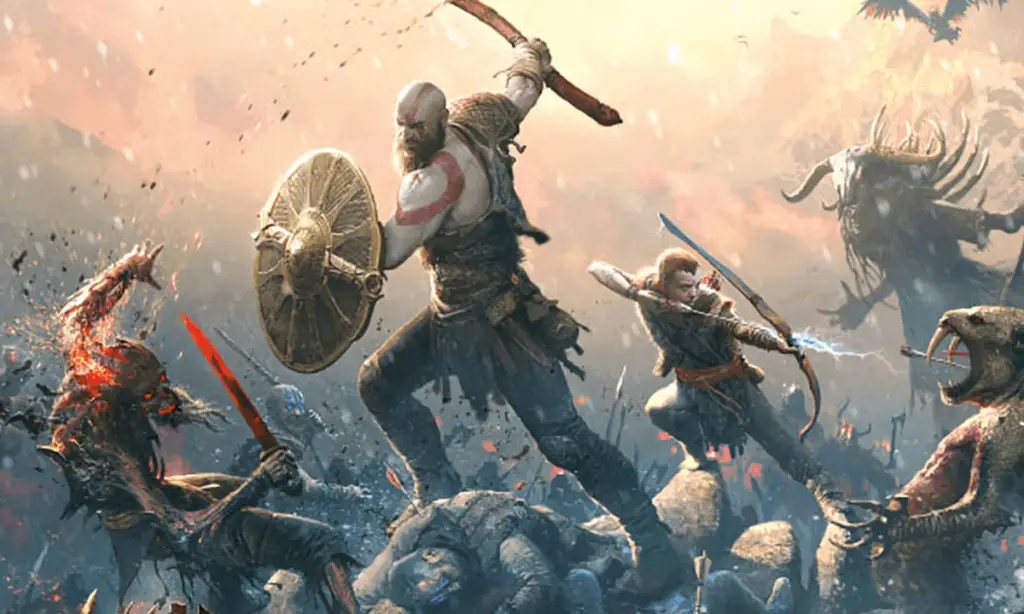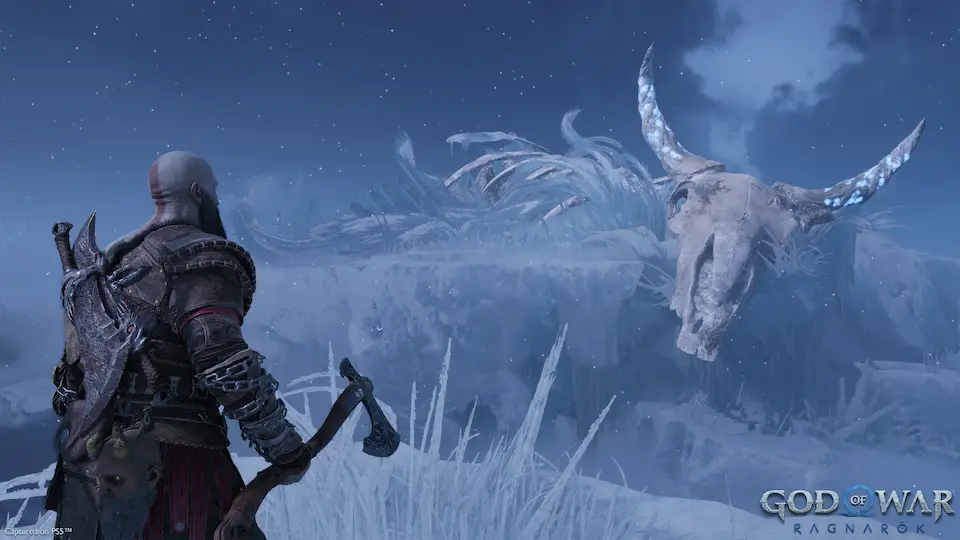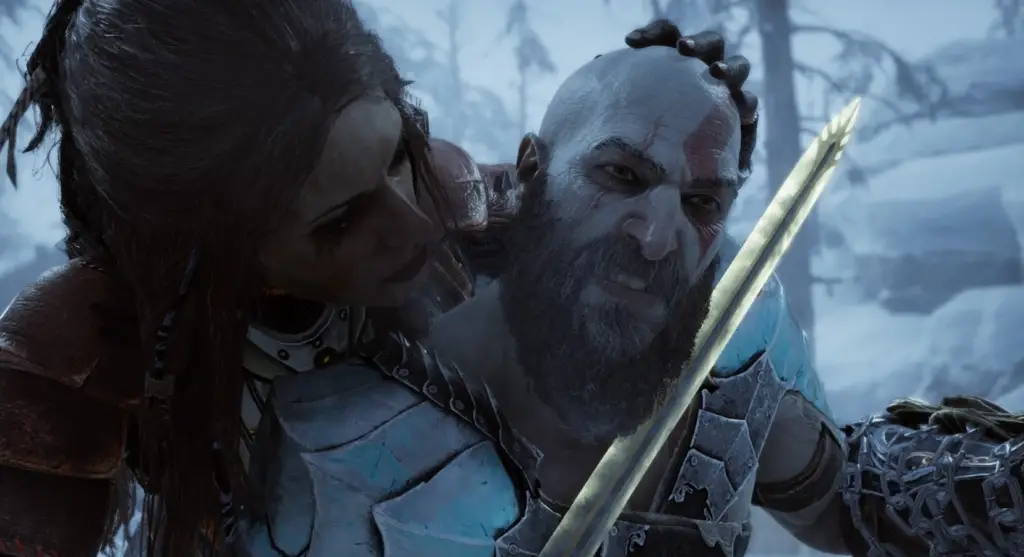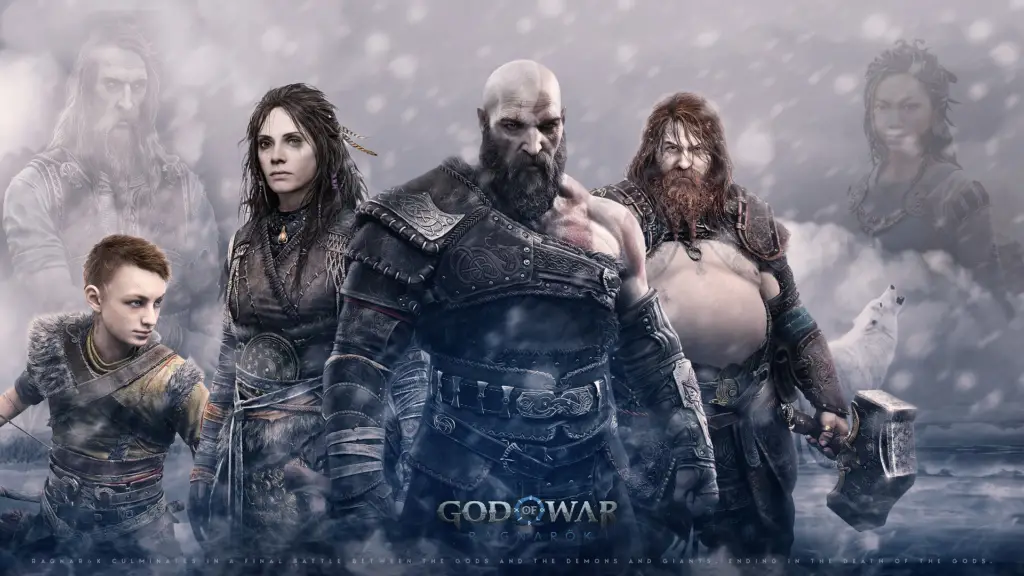As is well understood by fans of God of War Ragnarok and admirers of the myths of ancient Scandinavian peoples, Ragnarok is the key to everything.
In mythology, it is the concept of the apocalypse the end of the aged world, and the creation of a new one that kills most of the gods.
However, in God of War Ragnarok, this apocalyptic event is given some character feel to it by making Kratos and Atreus’ actions as gods and their choices as humans the ultimate breaker of the cycle, the destruction of the Norse realm.
Origins of Ragnarok in Norse Mythology

As in Norse mythology, Ragnarok can be translated as the ‘end of the Norse gods’, or several battles that ultimately lead to the demise of many of the gods, such as Odin, Thor, and Loki.
After this apocalypse, there is a cleansing as a new generation of gods starts afresh on a new world. This idea of destruction and then rebirth is ingrained in the Norse worldview, which is very much built around characteristics of survival and change – two things that are very prominently featured in the God of War Ragnarok story.
The Death of Balder and Its Consequences
In mythology and in the game God of War developed by Corp, Balder’s death is the chief instigation of Ragnarok. This loss fuels rivalry and conflict between the gods keeping in synch with the existence of myths and leading to the mythological clash.
Prophecies and Fate in Norse Tradition
Horning can be an effective forewarning decision in the essence of prophecies that are embodied in the Norse and Ragnarok is always avoidable.
In God of War Ragnarok, characters use their hands and try to change destiny, or do they just follow a path predetermined for them?
Ragnarok’s Impact on the Realms and Characters in the Game

The game continues Norse myths by demonstrating how the apocalypse was experienced in the nine realms and about other characters such as Kratos, Atreus, and Freya.
Every realm has its investment in this event and each main character has a conflict that stems from it being an apocalypse.
Midgard and Fimbulwinter
Fimbulwinter is Midgard’s constant extreme cold and winter which mark the beginnings of Ragnarok. The environment has manifested the feeling and the tiredness that people who live in it suffer as a consequence of the strife of the gods.
Atreus and the Role of Loki
In other words, since Atreus’ patronymic is Loki, his fate is linked with the material of the Norse mythological cycle of Ragnarok. His venture is to switch whether he wants to fight or submit to the godly part that people expect of him.
Freya’s Vengeance and Redemption Arc

The story of Freya going on the watch and seeking vengeance against Kratos for Balder’s murder is a clear stamp of revenge and forgiveness.
As a character, her development reflects the specific about-face of a myth for transformation, as she begins in bitterness and ends in accepting her place in the conflict.
Why Ragnarok Is Essential for the Overflow of the God Of War
As in all books of the series, the title event is not just a myth, but the protagonists’ morality, decision-making, and relationships are proof.
Thus, the character of Kratos’ development as the father, on one hand, and the conflict of destiny as elements of the plot make the series’ narrative changes representational.
Living Through the Cycle: The Story of Kratos

If there is one thing that Kratos moves throughout the game then it is violence and Ragnarok gives him the question of whether he is going to keep on doing it or not.
His decisions are a cycle of destruction and creation, and thus remain pertinent to questions of heritage and remembrance.
Exploring Death and End of Life
Ragnarok serves as an allegory to existentialism or more specifically: life, death, the afterlife, and rebirth. Both Kratos and Atreus uncover the concept of the inevitability of loss, which makes them change their fates and reject the gods ruling over the lives of mortals.